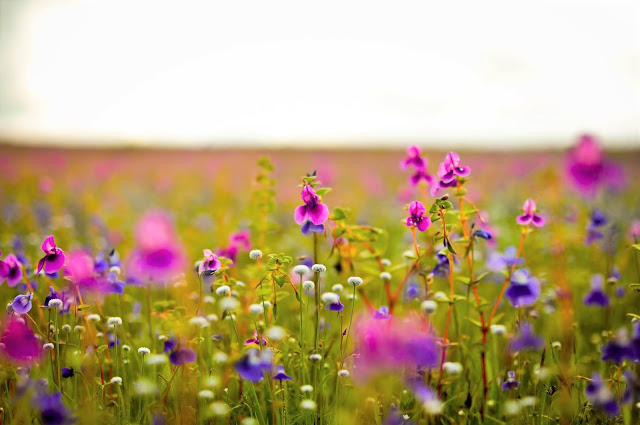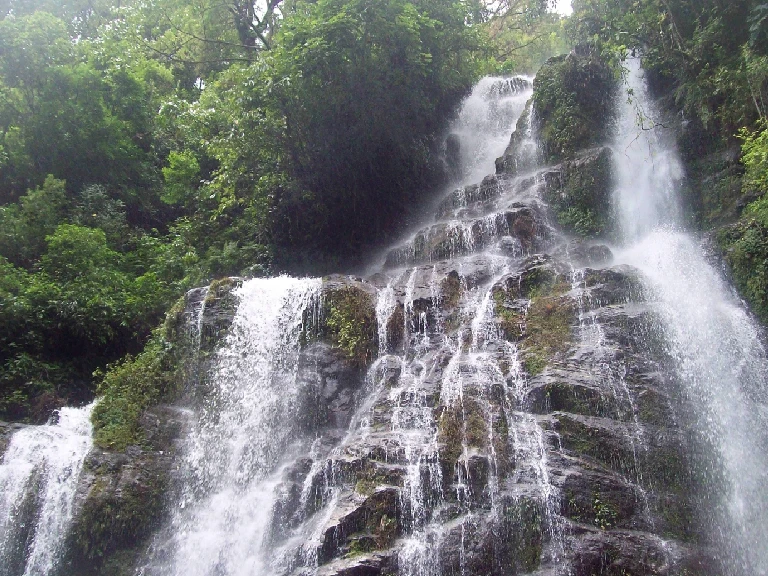The Kabuliwalah in us
It
is a cold, windy day that broods with pensive clouds, unexpectedly stemming the
otherwise balmy advent of summer. Wrapped in a shawl, I rev up the heater again
as winter seems to make a brief cameo. I look at the silvery-grey
nimbus clouds, almost inevitably going back to the one place where I celebrated
monsoon India like no other – Mumbai, the Sahyadri, the western ghats
and the Konkan coast.
It
will be extremely ungrateful if I do not mention of Kolkata and its bags of blue
nor’westers, Lucknow with its red-parched summers that seemed to be most
thankful of the quenching rains, and then the magnum opus chapter in
almost every book, that is the Himalaya – even in the rains! Yet, there was an almost redeeming liberation in
Mumbai in a lot many terms – financially and more importantly, in terms of
comradery. With like-minded friends who had long broken ice in surmounting the academic
rigours and challenges of Mount Lucknow, it took our small group a few months
to erode the rough corners of corporate life in Mumbai, to realise there cannot
be better company than the friendly circle that had countless night-outs in
campus. Slowly, the ones that mattered most, gravitated towards each other like
cratons on the earth’s crust, to form one sturdy continent of camaraderie, blessed
with amazing diversity, maturity and most importantly, patience and time for
each other. If one ran after endless Spanish classes to bolster the left brain,
another contemplated on the cataract-fed hills to take larger-than-life photographs.
If one slept through every available opportunity to display an enviable peace
of life, yet another egged the group to go running, hiking, and swimming to feast
on both fitness and endorphins. And all these, over and above the bounteous backbone
of travel that ran along the entire continent – capering on the Konkan coastline,
footslogging on the flinty Maratha fortresses, or slipping away in the Sahyadri
showers, I can never write enough of them. Every time the clouds come brooding
here, I go back to that chapter that shines even today like a small box of iridescent
jewels - of emerald hills, jaded vales, rubied sunsets, topaz coasts: altogether
multicoloured, swirling opalescent slivers on bygone diamond days.
On
days such as today, when there’s an abundance of melancholy dangling in the
skies, I often wonder how it would have been if things wouldn’t have changed,
if I had stayed back in Mumbai – such as in a romantic’s dream. It feels ebullient
to often imagine the best possibility in today’s future - the same set of friends
in the same city, exploring an endless world in that floating continent. One reason
why I often think it best to go back to where I came from.
But
the truth is, no one can tell you, in reality, how this alternate path would
have panned out. No, not any soothsayer, fortune teller, not even the most erudite
scientist who studies parallel universes. As Frost would have said, the two
roads diverged in the woods a long time back, but it is only with poetic
licence that he can say that his chosen path has made all the difference. The cursed truth with every choice remains the
fact, that one can never truly understand if the choice one made was the better
option. Who can tell how good or ugly the other option would have been? For even
if one can go back in space and geography, there’s one factor he cannot fight against
– time. It is then in no way possible to fully fathom the repercussions of all
the choices one has ever had.
In
instances as these, perhaps, we bring up the Kabuliwalah within each of
us. In the story of the same name by Tagore, the benevolent trader from faraway
Kabul trades for his living in Calcutta, and longs to go back to see his little
daughter who he had left behind. He partially fills this void when he finds in
the dusty by-lanes of the city little Mini, an energetic child of the same age
as his daughter. But as fate would have it, the benevolent trader is jailed for
a crime in Calcutta and is trapped for years. He spends his imprisonment dreaming
in the visions of the world that he had left behind – timeless, unaged, and
intact. When the Kabuliwalah finally gets his release though, the world
had changed long since. Little Mini is readying for marriage and cannot remember
his Pashtun friend, nor can the old Afghan accept that his little Mini has grown
up so much. To his utter grief, he realises that even his own daughter would
have grown up thus, and he would have to reconcile the ghosts from the past if
he were to restart the relationship all over again for any possible future.
Laced with pain, as is oft in Tagore’s stories that show us subtly yet
mercilessly the truths of life, the story ends with our Kabuliwalah deciding
to go back to his homelands, staring into the unknown with a profound sadness.
While
the entire passage of time is so simple, our minds make it difficult. Perhaps then,
we are all Kabuliwalahs when we dream of a future while being stuck in
the past, romanticising the best our memories can offer. We somehow want
to cling to the best of these yesterdays, and hence fail to acknowledge that
time has passed by, and with it the world as we had seen and known.
If
she had not left me…
If
I had taken that job…
If
I had not moved…
Perhaps,
these questions are best left to the yellowed empty pages in our diaries that
we never got to write. Better still, to look ahead, and decide what next, lest
you end up in yet another time loop of saudade, songs and sighs.
I
still am in touch with my friends from that age of the monsoon winds. But even
though we have tried not to move farther from each others’ lives, other
thespians have come in closer to each of us. The result is – and that is how it
always is – the bounteous continent is no longer the same. The cratons have moved
on, forming new continents, the only evidence of our distant past lying in the
fossil records and stratigraphic evidence buried deep in the faraway past. Zoom
calls, WhatsApp chats and Google photo reminders make a great archaeological effort
to dig that past and display them in the digital archives of our lives, but that
is what it is – an archive, maybe immensely rich, but still only a record. The
actual movie in real time has moved elsewhere with other actors and singers in
the spotlight, with only a few wispy strands from the past left in a background
picture or hidden in some palimpsest art.
Just
like little Mini who has grown up, we have all moved on, high-flying in our own
unique ways in career, family, or passion. We have all got our own new inner
circles, and I am sure, it is all great. If not, it will be. Yet – and here I take
the liberty to speak for all of us – once in a while, maybe, we all look back, smile,
and realise if there were times when the whole was greater than the sum of it
all, it was that age of the monsoon winds. For there is something with friends
that creates a unique sense of richness – no mandates, expectations or compulsions
that come with deep relationships, and yet a shared sense of trustworthiness
that is harder to come by as we grow older. As with all other flavours of youthfulness,
even relationships and friendships from this time seem so richly distilled that
they serve the strongest memories for decades.
And
as with all other elements of life, these too shall pass. There is then no
point holding onto these memories of the Kabuliwalah. For when true realisation
dawns, there is always greater pain than euphoria. The best we can do, is to accept
the closure, and move on. And yes, not to forget the memories, in whatever shape or form they still are
- and to once in a while, go back to these old diaries, unfold the dog-eared
pages, smile at the forgotten book-finders, read the ink-blotted lines and
re-read the ones scratched out, laugh at the good times, swallow that lump in
the throat at the sad times, and then, flip through those empty yellowed pages
to give a smile while closing it for the moment.
And finally, to muster enough willpower from the old times to open a new diary and start scribbling all over again...
26th
September, 2021
Image credit: Plateau of Flowers, Kaas, taken by Prashant



Comments
Post a Comment